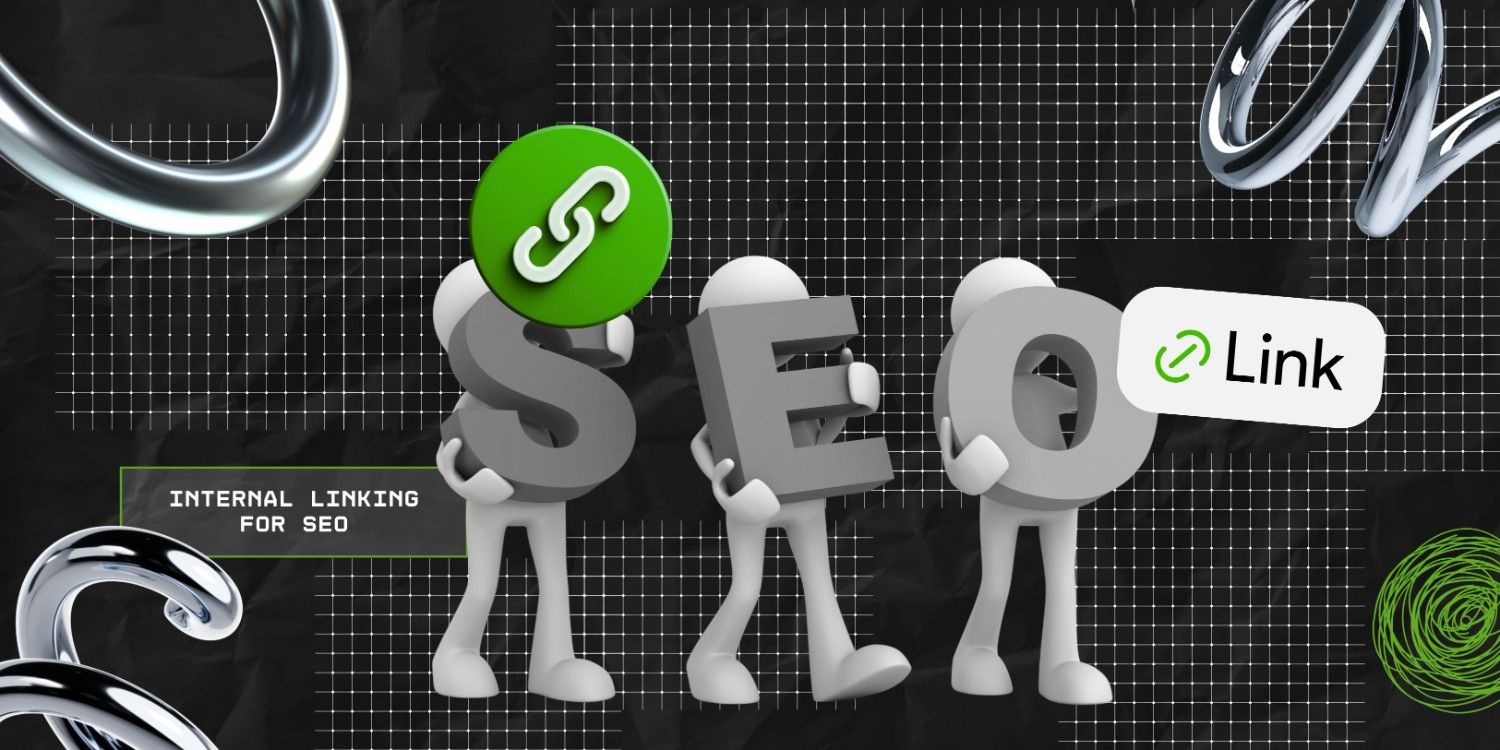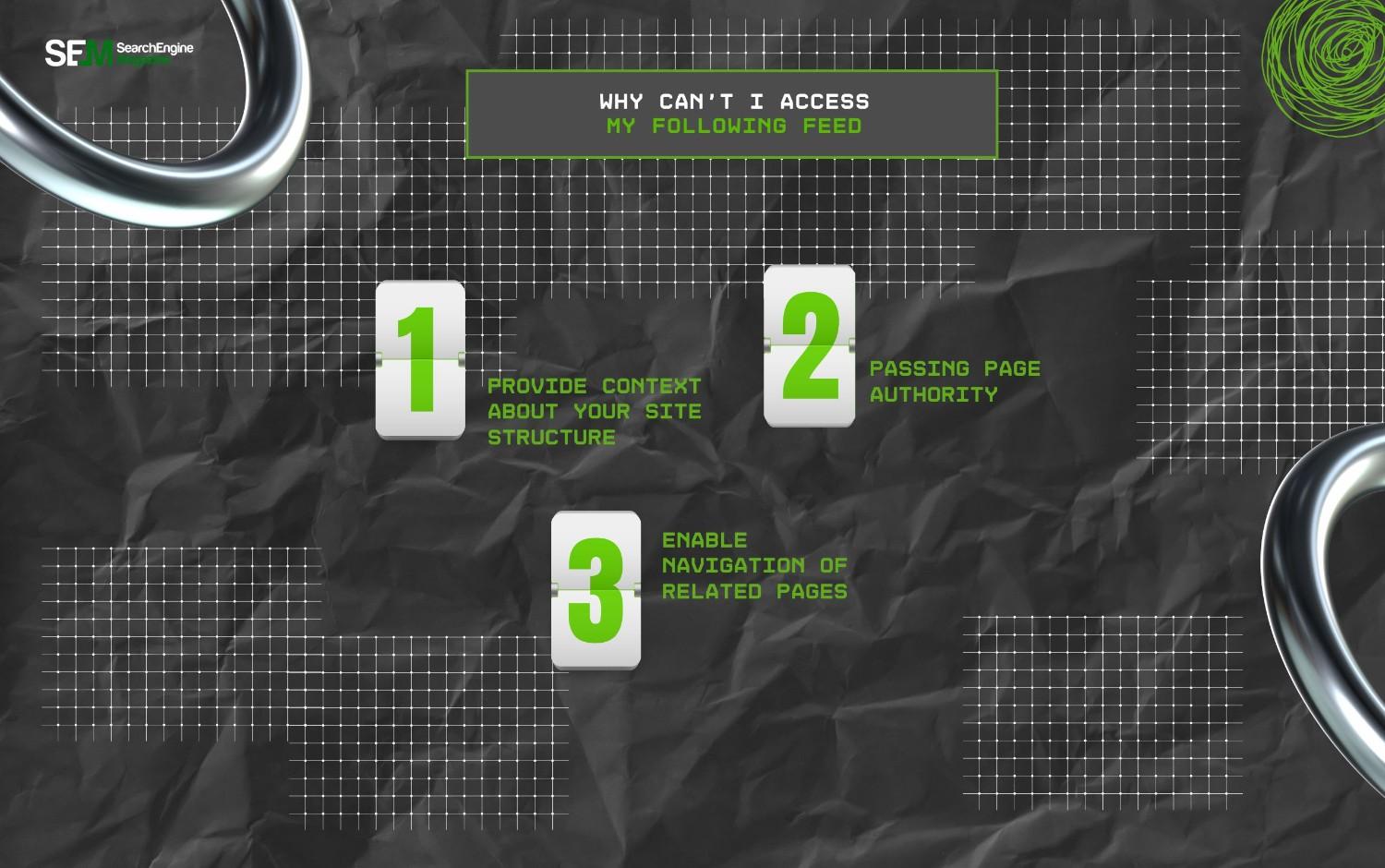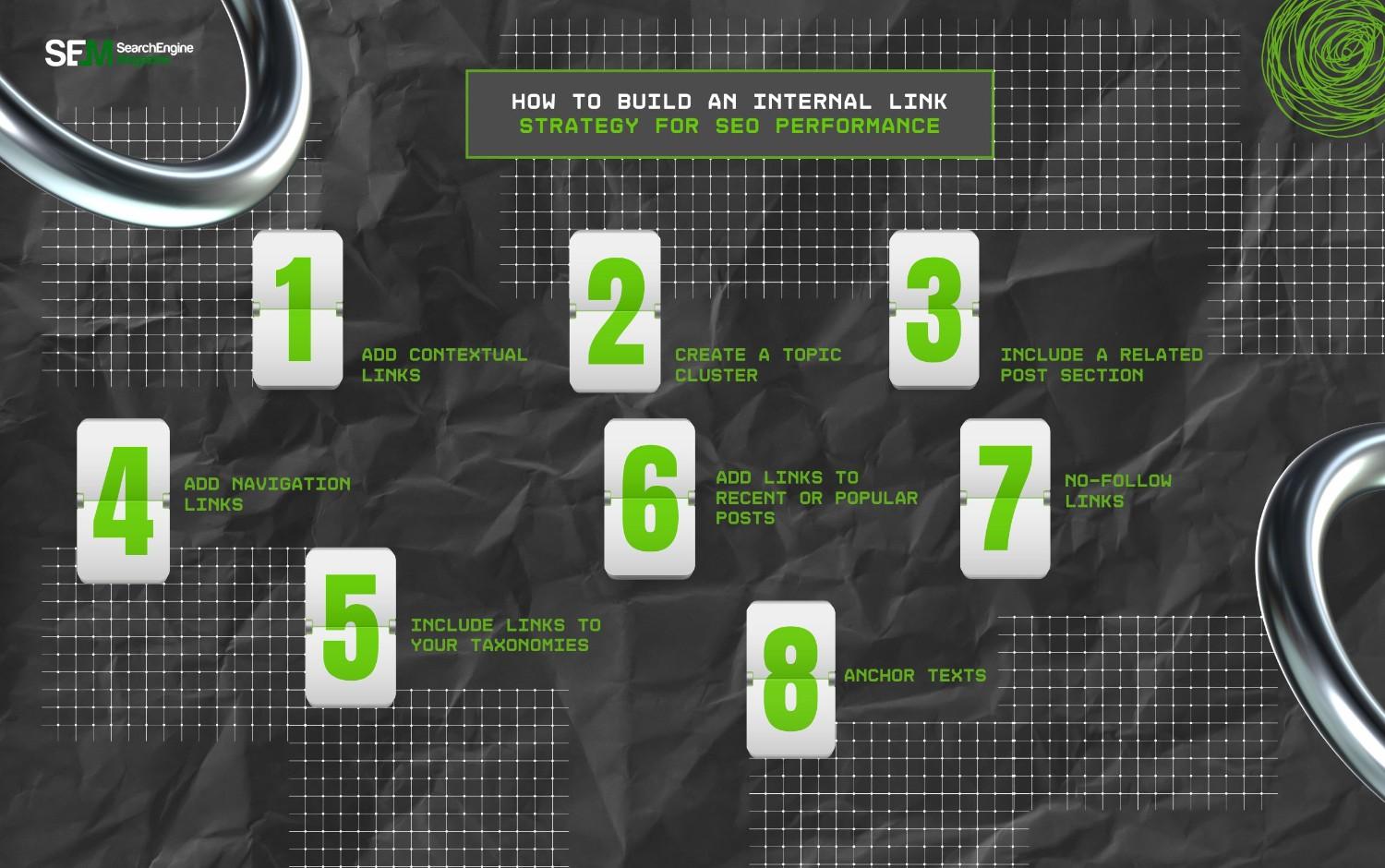5 Best CMS For SEO: Which One Optimizes Content Management?
Feb 11, 2026

Feb 11, 2026

Feb 11, 2026

Feb 10, 2026

Feb 09, 2026

Feb 07, 2026

Feb 06, 2026

Feb 06, 2026

Feb 05, 2026
Sorry, but nothing matched your search "". Please try again with some different keywords.


Internal linking for SEO is good before you rank your content. Google will find your pages and posts best when you link them somewhere on the internet. Internal links will also connect your web content and give Google a rough idea of your website’s structure.
Internal links can establish a hierarchy on your website and allow you to give the most crucial posts and pages a higher link value than the other pages that are less valuable. Therefore, you can boost your SEO by using the right internal linking strategy.
You can also attend an internal linking strategy, and most of them are available online. Some of the courses include internal linking, taxonomies, and cornerstone content.
Before starting off with the Internal linking strategies, it’s vital to understand what internal links are and how they affect SEO performance.
Basically, internal links refer to the hyperlinks incorporated within the content that lead the readers to other pages on the same domain. So, they help users navigate through related posts from the same website.
In addition to this, internal links help search engine algorithms to understand the context of your content. So, when you use internal links, search engines better understand the site’s structure and improve the SEO performance.
Predominantly, there are seven types of internal links that serve different purposes. Some of these include—

Mainly, internal linking for SEO helps search engines to index site pages based on their structure and context.
So, it enables the algorithms to understand which pages are most important and improve their visibility. Apart from this, internal linking benefits websites in countless ways, some of which include—
Firstly, adding internal links to your content helps the search engine algorithm to understand the structure of the site. Moreover, it provides a cluster of relevant pages linked under one topic.
So, naturally, Google’s crawlers discover new pages from the internal links and index them based on their relevance to the topic coverage.
In addition to this, internal linking massively helps in passing the authority from pages with lots of external links to other internal pages. So, distributing the higher authority of the page and strengthening the other pages.
For example, if Page A covering the SEO Strategies has more external links and higher authority, then it can be passed on to Page B through internal links. So, creating a properly balanced link equity.
Moreover, internal linking helps your readers navigate through other related pages on your website. So, this increases their spending time on the site and improves the conversion rate.
For example, if your content page is about “How to Fix A PC Fan?”, you can internal link to other pages covering topics like “Essential PC Parts”. So, creating a cluster of related topics.
This way, you provide the exact information that the user might be looking for. So, providing them with relevant and useful content on a variety of topics.

All websites have both external and internal links. External links will connect the pages on your website to other sites while internal links connect the posts and pages of your site to your website.
| External Link | Internal Link |
|---|---|
| 1. They have different domains. | 1. They have the same domain. |
| 2. Their purpose is to provide credibility, authority, and referral traffic to your content. | 2. Their main purpose is to ensure readers are navigating, engaging with the content, and enhancing SEO performance. |
| 3. Potentially lead to backlinks. | 3. Essentially distributes the link equity and improves crawlability. |
| 4. Links the content with other research work and websites. | 4. Links the main content with another blog or ecommerce site from the same domain. |
As a website owner, you can think of your site as a pyramid. The homepage occupies the top section and further down you will get individual pages and posts. The pages and posts can have subcategories in between them.
If you get it right, the menu of your website should reflect the above structure. Make sure you get the right structure for your website if you want to succeed in internal linking for SEO.
You need to understand the essential content for your website. If you are not sure about information, it is good to start by doing some research. You need the most complete and best content for your website.
It is the content you will want your target audience to get while searching for products and topics that you are specializing in. You need to allow Google to know that it is your most important content by adding several links.

You can use several spots to link to your main content. In this section, I will give you the most common alternatives from the copy of your post to the navigation.
After writing several articles about a specific topic, you have to link them to one another. It will show Google and other users that the articles are related topically. You may directly link from sentences in your copy or include links at the end of the post.
Besides, you will want to tell articles about the articles that are your cornerstone. It refers to the most critical articles on those particular topics. To do this, you should include links to the cornerstone in all your articles on the subject. Also, remember to link back from your cornerstone to your posts.
Internal linking for SEO will help your posts to rank for all the search quarries that are related to the keyword in the search engine results. You need to add links from the relevant articles to the main article. You can also link back from the main article to these posts.
Once you do this, Google will understand that this ultimate guide has most of the information about your keyword. In the end, the search engine will rank your main post above the other short posts on your keywords.
Apart from the main topic, you need to cover related content topics in detail. This will help in building a topic cluster around the main or pillar content.
So, for example, if your pillar content is about “copywriting content”, then your topic clusters can include—
So, by covering these subtopics, you can create a complete cluster of content around the main content idea “copywriting”. And, you can use the pages for relevant internal linking on the site.
Several modules and plugins add complete related post sections to your posts. If you decide to use one, you have to determine whether these posts are related. If you aren’t sure about this information, the best approach would be to link back manually to the best.
You can choose the related posts manually or use the internal linking tools. From here, you can add a related link about your web post at the bottom of your article.
Apart from linking from pages and posts that are topically related, you can also make your most important (cornerstone) content more authoritative by including links to it from the top navigation or homepage. You need to do this with pages and posts that have the highest level of importance to your brand.
It will give a high link value to your pages or posts and make them strong in the eyes of Google. Therefore, internal linking for SEO is best when you add navigation links.
Taxonomies, like tags and categories, will assist you in organizing your website. It also helps Google and your users to know the theme of your website. If you already have a blog, it will be a good idea to add internal links to the taxonomies of the blog.
When you add links to the tags and category, Google will understand the structure of your blog. It will also help your visitors to navigate to the related posts with a lot of ease.
The final alternative that we need to mention is the creation of internal links to the newest or popular posts on your website. It can be better if you create these sections in the footer or sidebar of your website so that they can appear on all the posts and pages.
As the link value continues to pass to the most recent or popular posts from many different posts and pages, they will get a great boost. Apart from this, visitors will find it easier to access your post. It will send a positive sign to Google that will assist you to increase the amount of traffic.
You could also be having links that are not adding value to the SEO of your site. For example, if you have a customer login link on your homepage, there may be no reason to link back to this login page. The reason is that the page should not rank high in SEO.
You can give some of these unimportant links a no-follow tag so that you don’t lose value to them. The no-follow tag will tell Google not to follow that link so that you don’t lose any value from your internal linking for SEO efforts.
However, Google is smarter now and choosing to ‘no-follow’ the less critical links will not necessarily place higher value to the most important links on your website. Therefore, the link value to the no-follow links will not automatically flow to the other links on your website.
Google will count the no-follow link as a link, and you will lose its link value. Therefore, it is more valuable to have few links on your pages instead of deciding to ‘no-follow’ some of your links.
Remember, once you add a no-follow tag, it does not imply that the affected target pages will be unavailable in the search results. If you don’t want specific posts or pages to show up in Google’s search results, you should also give them the ‘no-index’ tag.
With the no-index tag, Google will not render the page and will not give the content a place in its index, and hence, it will not show up in the search results.
Once you decide on the links that will be on your page and the ones that will receive link value, you have to make sure that you are using the right anchor texts. This term refers to the clickable text that your visitors will see.
It is not recommended to over-optimize the anchor text as this may hurt your website. Over-optimization means keyword stuffing. In the past, you could give all the anchor texts the same keyword still rank highly in the search engine.
However, Google has become smarter when it comes to internal linking for SEO. The content around the anchor text should say more about your keyword relevancy and not the anchor text itself. The anchor text should be natural in your copy. You can use keywords, but it should be different from the keyword in all anchor texts of the link.
With this information, you can now begin to use internal linking for SEO. Once you have a solid strategy for internal linking, you need to show the related content and the most valuable and informative articles. If you our guideline, both users and Google will get a better understating of your website and this will increase your possibility of ranking better.
Barsha is a seasoned digital marketing writer with a focus on SEO, content marketing, and conversion-driven copy. With 7 years of experience in crafting high-performing content for startups, agencies, and established brands, Barsha brings strategic insight and storytelling together to drive online growth. When not writing, Barsha spends time obsessing over conspiracy theories, the latest Google algorithm changes, and content trends.
View all Posts

